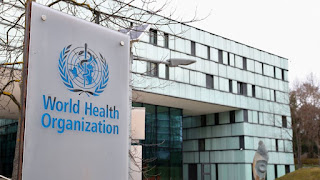Global Cancer Cases Expected to Surge by 77% by 2050, Warns WHO's Cancer Agency
The International Agency for Research on Cancer (IARC), a division of the World Health Organization (WHO), has released a concerning estimate projecting a 77% increase in global cancer cases by the year 2050. The report emphasizes the current cancer burden, disparities in cancer services, and the urgent need for worldwide efforts to tackle this growing health crisis.
Key Findings of the Report:
Current Cancer Statistics (2022):
- Estimated 20 million new cancer cases and 9.7 million deaths globally.
- Lung, breast, and colorectal cancers identified as the top three major types.
- About 53.5 million people alive within 5 years after a cancer diagnosis.
- Approximately 1 in 5 people develop cancer in their lifetime, with 1 in 9 men and 1 in 12 women succumbing to the disease.
Universal Health Coverage (UHC) and Cancer Services:
- WHO's UHC survey indicates that only 39% of surveyed countries cover basic cancer management in financed core health services.
- Palliative care is additionally covered by just 28% of countries.
Breast Cancer Inequities:
- Stark disparities observed in breast cancer outcomes, with women in low Human Development Index (HDI) countries facing higher mortality rates despite being less likely to be diagnosed.
- Urgent action needed to address late diagnosis and limited access to quality treatment in these regions.
Projected Estimates (2050):
- Global cancer burden expected to surpass 35 million new cases in 2050.
- Population aging, growth, and changes in risk factors contribute to the surge.
- High HDI countries anticipated to witness the greatest absolute rise, with an additional 4.8 million cases.
- Low and medium HDI countries may experience a 142% and 99% increase, respectively.
Expert Warnings:
- Dr. Freddie Bray, Head of the Cancer Surveillance Branch at IARC, warns of the uneven impact across countries, stating that those with the fewest resources will bear the brunt of the global cancer burden.
- Dr. Cary Adams, Head of UICC, emphasizes the crucial role of political will in addressing disparities and ensuring universal access to affordable, quality cancer services.
As the global cancer burden escalates, concerted efforts are deemed essential to enhance prevention, early detection, and treatment, striving for a more equitable global health landscape.
Please note that these figures and projections are based on estimates and may be subject to change as more data becomes available.

















0 Comments